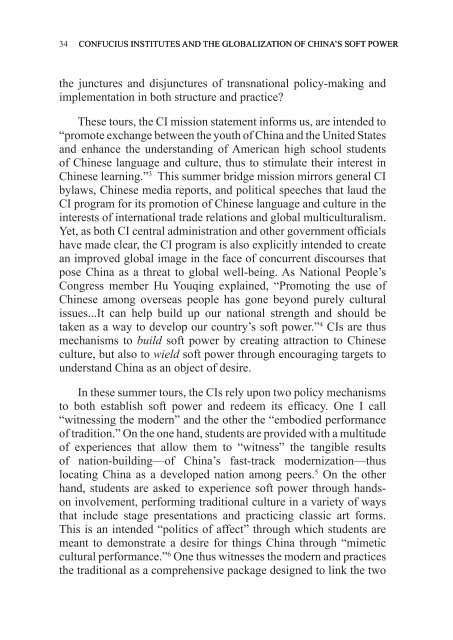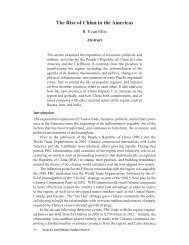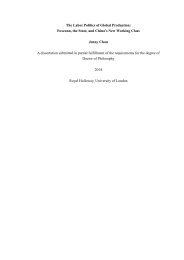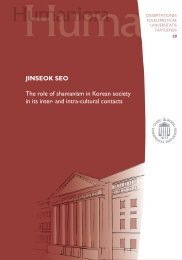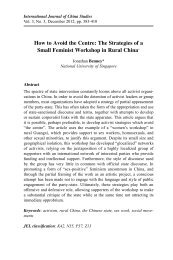Confucius Institutes v2 (1)
Confucius Institutes v2 (1)
Confucius Institutes v2 (1)
Create successful ePaper yourself
Turn your PDF publications into a flip-book with our unique Google optimized e-Paper software.
34 CONFUCIUS INSTITUTES AND THE GLOBALIZATION OF CHINA’S SOFT POWERthe junctures and disjunctures of transnational policy-making andimplementation in both structure and practice?These tours, the CI mission statement informs us, are intended to“promote exchange between the youth of China and the United Statesand enhance the understanding of American high school studentsof Chinese language and culture, thus to stimulate their interest inChinese learning.” 3 This summer bridge mission mirrors general CIbylaws, Chinese media reports, and political speeches that laud theCI program for its promotion of Chinese language and culture in theinterests of international trade relations and global multiculturalism.Yet, as both CI central administration and other government officialshave made clear, the CI program is also explicitly intended to createan improved global image in the face of concurrent discourses thatpose China as a threat to global well-being. As National People’sCongress member Hu Youqing explained, “Promoting the use ofChinese among overseas people has gone beyond purely culturalissues...It can help build up our national strength and should betaken as a way to develop our country’s soft power.” 4 CIs are thusmechanisms to build soft power by creating attraction to Chineseculture, but also to wield soft power through encouraging targets tounderstand China as an object of desire.In these summer tours, the CIs rely upon two policy mechanismsto both establish soft power and redeem its efficacy. One I call“witnessing the modern” and the other the “embodied performanceof tradition.” On the one hand, students are provided with a multitudeof experiences that allow them to “witness” the tangible resultsof nation-building—of China’s fast-track modernization—thuslocating China as a developed nation among peers. 5 On the otherhand, students are asked to experience soft power through handsoninvolvement, performing traditional culture in a variety of waysthat include stage presentations and practicing classic art forms.This is an intended “politics of affect” through which students aremeant to demonstrate a desire for things China through “mimeticcultural performance.” 6 One thus witnesses the modern and practicesthe traditional as a comprehensive package designed to link the two


